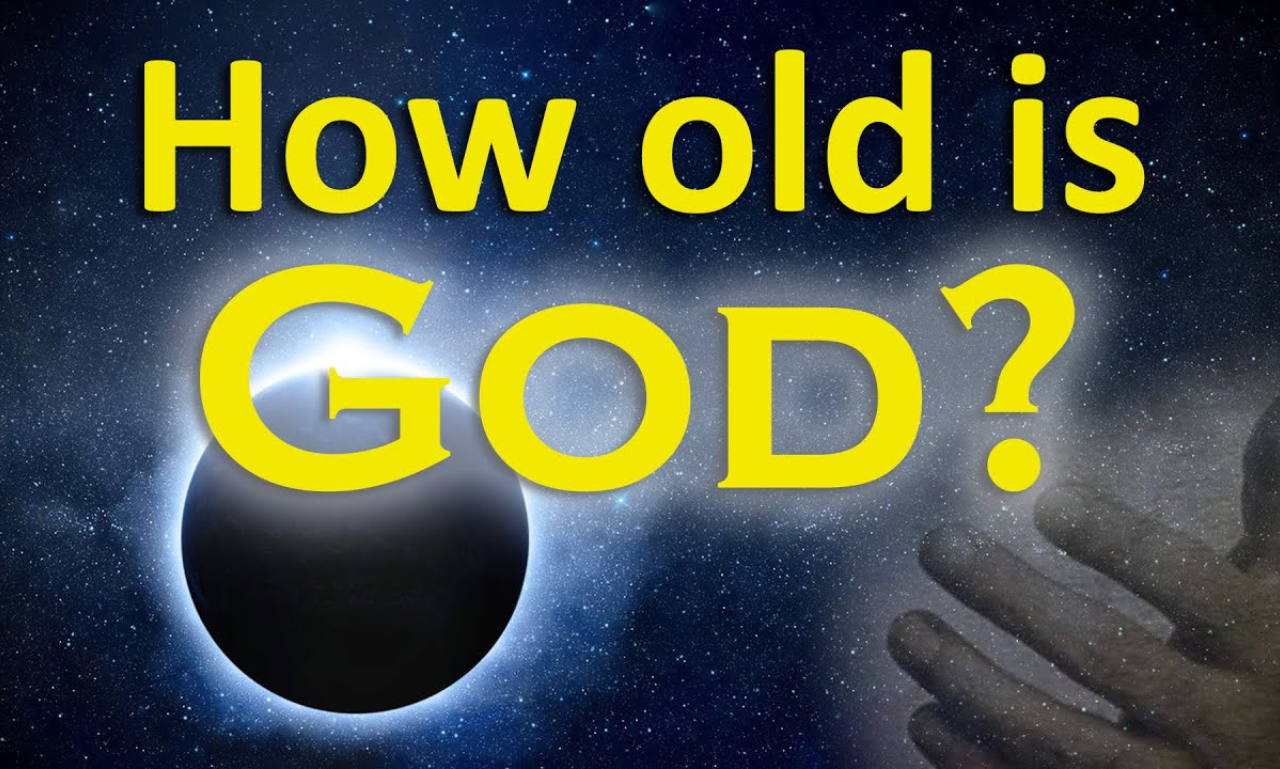Table of Contents
In our search for understanding the universe and the mysteries of life, one of the most profound questions we often ponder is about the age of God. It’s a question that transcends cultures and religions, sparking curiosity in believers and non-believers alike. However, from an Islamic perspective, the question “how old is God” opens a gateway to deep theological reflection, rooted in the belief that God, or Allah, is beyond the limits of time and human understanding.
The Concept of Time in Islam
Before diving into how old God is, it’s essential to understand the Islamic view of time itself. In Islam, time is a created concept. Allah says in the Quran:
“Indeed, your Lord is Allah, who created the heavens and the earth in six days and then established Himself above the Throne. He covers the night with the day, [another night] chasing it rapidly; and [He created] the sun, the moon, and the stars, subjected by His command. Unquestionably, His is the creation and the command; blessed is Allah, Lord of the worlds.” (Surah Al-A’raf 7:54)
This verse illustrates that Allah is the creator of everything we see, including time. Time began when Allah willed it to exist, making it one of His many creations. Thus, time does not apply to Allah in the way it applies to us. The ticking of hours, the passing of days, and the flow of years are for humans and the universe, not for Allah.
The Eternal Nature of Allah
In Islamic teachings, Allah is described as eternal and uncreated. The idea of eternity is essential in answering the question “how old is God.” The Prophet Muhammad (PBUH) said in a hadith:
“Allah existed and there was nothing else besides Him.” (Sahih Bukhari)
This hadith gives a clear message that Allah is without beginning or end. He exists outside the confines of time, making it impossible to assign an age to Him. He is described as Al-Awwal (The First) and Al-Akhir (The Last), two of Allah’s 99 names, which affirm that He existed before anything and will continue to exist after everything ceases.
In the Quran, Allah says:
“He is the First and the Last, the Ascendant and the Immanent, and He is, of all things, Knowing.” (Surah Al-Hadid 57:3)
This verse further emphasizes Allah’s infinite existence, surpassing all concepts of time. Therefore, asking “how old is God” from an Islamic perspective becomes irrelevant since Allah is beyond age, unbound by time, and eternal.
Allah’s Timelessness
When trying to understand Allah’s timelessness, it can be challenging for our minds to grasp the idea of something or someone existing without a beginning or an end. Everything we know in our world is finite. People are born, grow older, and eventually die. Planets and stars have lifespans. Even the universe itself, according to modern science, had a beginning with the Big Bang. But Allah is different.
Islamic scholars describe Allah as Baqi (The Everlasting) and Qadim (The Ancient One), terms that indicate His existence without beginning or end. Allah has always existed and will always exist, and this existence does not depend on the passage of time.
One might wonder why humans find it hard to comprehend the timelessness of God. Our limitations come from the fact that we experience everything within the framework of time. We observe things aging, growing, and decaying. In contrast, Allah is not subject to these processes because He created them.
The Creation of Time

One of the key Islamic concepts is that Allah created time itself. Time, as we know it, is just a measurement for our benefit in this world. From an Islamic viewpoint, time was created by Allah for the universe, but He exists independently of it. The Quran mentions the concept of time creation in several places, indicating that Allah transcends the temporal realm.
For example, in Surah Al-Asr, Allah swears by time:
“By time, indeed mankind is in loss.” (Surah Al-Asr 103:1-2)
Scholars interpret this as a reminder of the value of time for humans, but they also note that Allah is not bound by the time He created. His swearing by time in the Quran is a powerful way to emphasize its importance for human life while also indicating that He remains above and beyond it.
How the Quran Describes God’s Timelessness
The Quran uses several descriptions to highlight Allah’s existence beyond the constraints of time. One of the most famous verses is from Surah Ikhlas:
“Say, ‘He is Allah, [who is] One, Allah, the Eternal Refuge. He neither begets nor is born, Nor is there to Him any equivalent.’” (Surah Al-Ikhlas 112:1-4)
This Surah succinctly encapsulates Allah’s oneness and eternal nature. He does not give birth, nor was He born, implying that He is outside the natural cycle of life and death. This is yet another reminder of Allah’s eternal, ageless nature.
Misunderstanding God’s Age in Human Terms
When people ask “how old is God,” they are often influenced by the human experience of life. Everything in our world has a beginning, so it’s only natural to wonder about the beginning of God. But in Islam, Allah’s existence defies the limitations of human logic because He is the creator of both life and death.
In several verses, Allah reminds people that His existence is incomparable to anything in the world.
“There is nothing like unto Him, and He is the Hearing, the Seeing.” (Surah Ash-Shura 42:11)
This verse underlines that Allah cannot be likened to any of His creations, including humans, who age and perish. Therefore, attempting to calculate God’s age using human standards is impossible because He is beyond comparison.
The Importance of Understanding Allah’s Eternality

Recognizing Allah’s eternality has a significant impact on Islamic faith. It reinforces the belief that Allah is not like His creation in any way. His power, knowledge, and presence are infinite and everlasting. This concept of an eternal, unchanging God offers comfort and stability to believers because it means that Allah’s presence and mercy will never diminish.
Muslims believe that no matter how much time passes in their lives, Allah is always there, guiding, watching, and sustaining them. The Prophet Muhammad (PBUH) said in another hadith:
“O Allah, You are the First, there is nothing before You, and You are the Last, and there is nothing after You.” (Sahih Muslim)
This statement beautifully summarizes the Islamic belief in Allah’s eternal nature. He existed before anything else, and He will remain after everything ends.
Conclusion
So, how old is God? In Islam, the answer to this question is that Allah is ageless, timeless, and eternal. He is beyond the human concept of time, existing before its creation and beyond its limits. Allah’s timeless nature is a core aspect of Islamic belief, emphasizing that He is not subject to the same rules that govern the universe and its creations.
For Muslims, understanding the eternal nature of God deepens their faith, reminding them that Allah is the ultimate source of life, sustenance, and everything in existence. His agelessness reaffirms the idea that He is not bound by the limitations of the world He created. Through the Quran and the teachings of the Prophet Muhammad (PBUH), it becomes clear that Allah is eternal, and His existence transcends time itself.
Here are 10 FAQs related to the article on “How Old is God?” from an Islamic perspective:
1. How old is God in Islam?
In Islam, God (Allah) is ageless. He exists outside the concept of time, making it impossible to assign an age to Him. Allah is eternal, with no beginning or end.
2. Does Allah have a beginning or an end?
No, according to Islamic belief, Allah has no beginning or end. He is described as Al-Awwal (The First) and Al-Akhir (The Last), meaning He exists beyond time and creation.
3. Why can’t we measure God’s age like human age?
God created time itself, and therefore, He is not bound by it. Humans experience life through the passage of time, but Allah exists outside this framework, making Him timeless and eternal.
4. What does the Quran say about Allah’s timelessness?
The Quran emphasizes Allah’s eternal nature in verses like Surah Al-Hadid (57:3), which states that Allah is “The First and The Last,” signifying that He existed before anything and will continue to exist after everything.
5. Is Allah subject to time in any way?
No, Allah is not subject to time. Time is a creation of Allah, meant for humans and the universe. Allah exists independently of time, which is why He is described as eternal.
6. How does Islam describe Allah’s eternal nature?
In Islam, Allah is described as Baqi (The Everlasting) and Qadim (The Ancient One), indicating that He has always existed and will always exist. His existence is independent of time and space.
7. Can humans fully understand Allah’s eternity?
Humans, limited by their understanding of time and space, cannot fully comprehend Allah’s eternity. Islamic teachings affirm that Allah’s nature is beyond human understanding, including His timeless existence.
8. How does the creation of time relate to Allah’s existence?
According to Islamic belief, Allah created time for the universe. This means that time began with creation, but Allah existed before that. He is independent of the limitations of time and is eternal.
9. What does it mean that Allah is Al-Awwal and Al-Akhir?
Al-Awwal means “The First,” and Al-Akhir means “The Last.” These names of Allah signify that He existed before anything else and will exist after everything else ceases, further highlighting His timeless nature.
10. Why is understanding Allah’s timelessness important for Muslims?
Understanding Allah’s timelessness deepens faith by affirming that Allah is eternal, unchanging, and ever-present. It provides a sense of security and comfort, knowing that Allah’s presence, guidance, and mercy will never fade.


